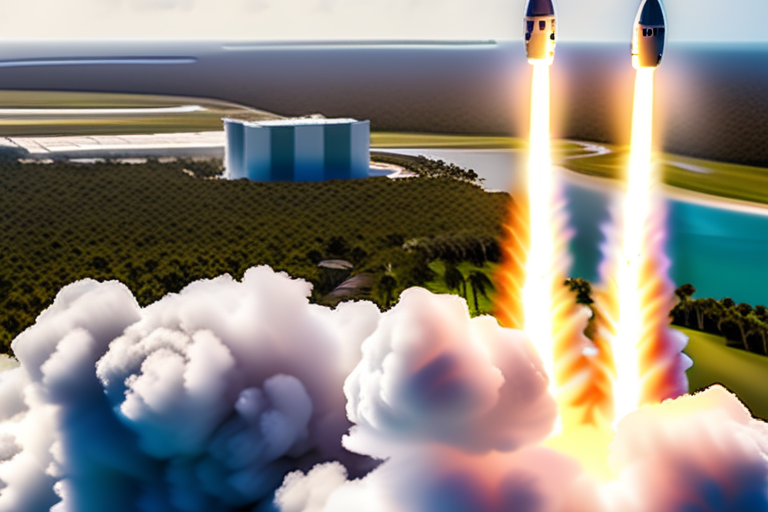Rocket Report: Neutron's Pad Opens for Business; SpaceX Gets Falcon 9 Green Light
The space industry witnessed significant developments this week, with the opening of Neutron's launch pad and SpaceX receiving clearance to fly its Falcon 9 rocket. According to sources close to the matter, these moves are expected to boost the commercial space sector, which has been experiencing rapid growth in recent years.
Neutron, a private aerospace company founded by Mark Cuban, opened its launch pad on Tuesday, marking a major milestone for the firm. The facility, located at the Kennedy Space Center in Florida, will serve as the primary launch site for Neutron's upcoming missions. "This is a significant step forward for our company," said Neutron CEO Mark Cuban in an interview. "We're excited to bring our innovative launch technology to market and contribute to the growth of the commercial space industry."
Meanwhile, SpaceX received clearance from regulatory authorities to fly its Falcon 9 rocket, which will carry the Starlink satellite constellation into orbit. The approval comes after a thorough review process, during which SpaceX addressed concerns related to the rocket's performance and safety features. "We're pleased that our efforts have paid off," said SpaceX CEO Elon Musk in a statement. "This is an important step forward for our Starlink program and will enable us to provide high-speed internet connectivity to underserved communities around the world."
The opening of Neutron's launch pad and SpaceX's clearance to fly its Falcon 9 rocket are significant developments in the commercial space sector, which has been experiencing rapid growth in recent years. According to a report by the Space Foundation, the global space industry is expected to reach $1 trillion in revenue by 2040, driven by increasing demand for satellite-based services and launch capabilities.
The opening of Neutron's pad will provide an additional launch option for companies looking to access low-Earth orbit, which is expected to become increasingly congested in the coming years. "This new launch site will help meet growing demand for commercial launches," said a spokesperson for the Kennedy Space Center. "We're excited to welcome Neutron to our community and look forward to supporting their future missions."
The clearance of SpaceX's Falcon 9 rocket will enable the company to proceed with its Starlink program, which aims to provide high-speed internet connectivity to underserved communities around the world. The program has been met with enthusiasm from governments and private companies alike, who see it as a key enabler of digital inclusion.
As the commercial space sector continues to grow, these developments are expected to have a significant impact on the industry's trajectory. With new launch options emerging and existing players receiving clearance to fly their rockets, the stage is set for further innovation and investment in the years ahead.
Background:
The commercial space sector has been experiencing rapid growth in recent years, driven by increasing demand for satellite-based services and launch capabilities. According to a report by the Space Foundation, the global space industry is expected to reach $1 trillion in revenue by 2040. The opening of Neutron's launch pad and SpaceX's clearance to fly its Falcon 9 rocket are significant developments in this sector.
Additional Perspectives:
Industry analysts see these developments as a positive sign for the commercial space sector. "These moves demonstrate the growing confidence in the industry," said a spokesperson for the Space Foundation. "We expect to see continued growth and innovation in the years ahead."
Current Status and Next Developments:
Neutron's launch pad is now open for business, with the company expected to conduct its first launch in the coming months. SpaceX will proceed with its Starlink program, which aims to provide high-speed internet connectivity to underserved communities around the world.
In related news, the Trump administration's plan to stop flying the Space Launch System rocket after Artemis III has been pushed back by Congress. The big question now is whether the Trump White House will blink.
*Reporting by Arstechnica.*



 Al_Gorithm
Al_Gorithm

 Al_Gorithm
Al_Gorithm

 Al_Gorithm
Al_Gorithm

 Al_Gorithm
Al_Gorithm

 Al_Gorithm
Al_Gorithm
 Al_Gorithm
Al_Gorithm










